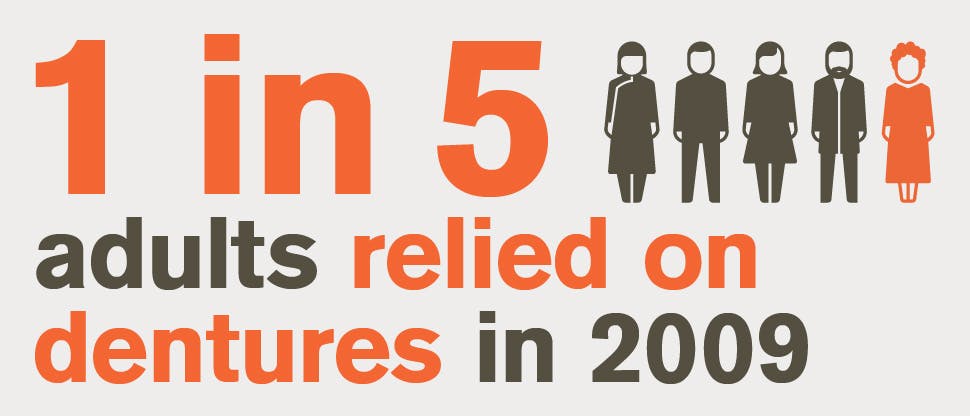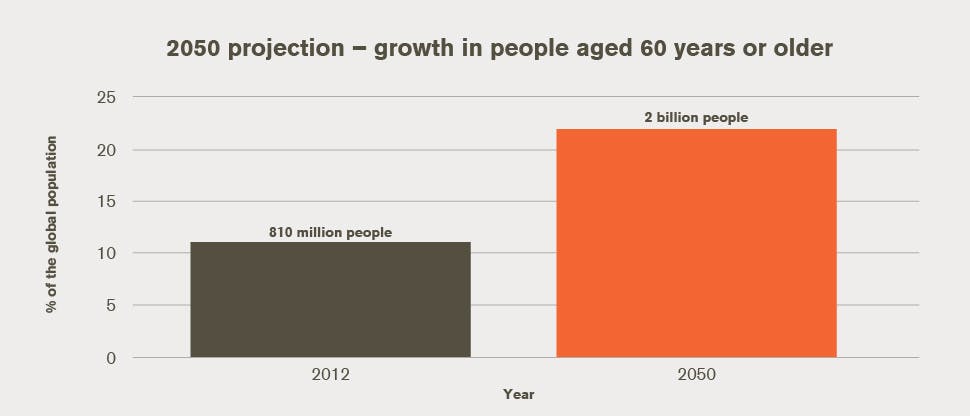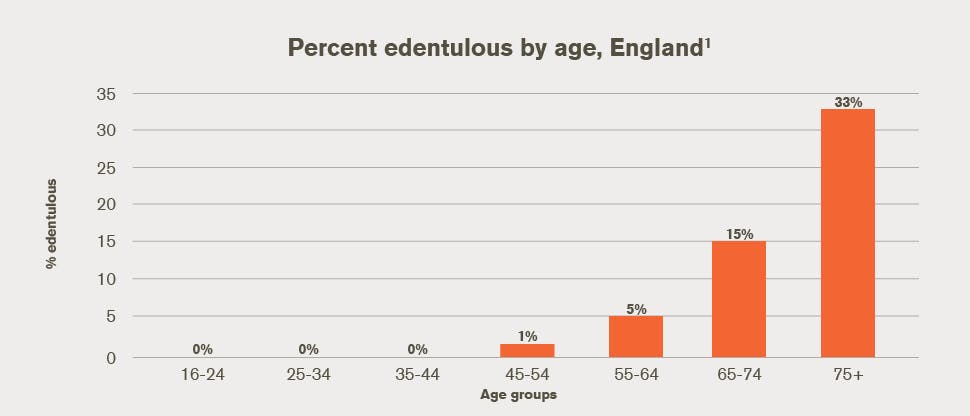Denture care: an overview for professionals

Understanding denture care as a professional
Teeth form an intimate part of how we look and feel, and for almost 1 in 5 people in England who rely on either a full or partial denture, dentures do too.1
Patients face challenges at all stages of the denture journey, and must adapt to a number of different prostheses: partial dentures, immediate dentures following tooth extraction and full dentures.2,3
Each patient’s experience will be different. Individual medical, physical and psychological factors, such as oral anatomy, xerostomia, and how the patient adapts to their prosthesis, can affect how their dentures perform.2–6
To date there has been a lack of official guidance on how denture cleansers and adhesives should be used.
The Oral Health Foundation has now produced new global science-based guidelines for dental professionals in a project sponsored by GlaxoSmithKline Consumer Healthcare. Developed by a global task force of academic experts, the new guidance outlines recommendations for dental professionals on the use of denture adhesive and cleansers and their benefits for oral and general health.
The number of denture wearers is increasing1,7
Read more about denture care for professionals in oral health
Causes and mechanisms
Find out more about the factors that can limit denture performance and compromise hygiene
Impact on patient quality of life
Find out about the impact that dentures have on patients’ daily lives



